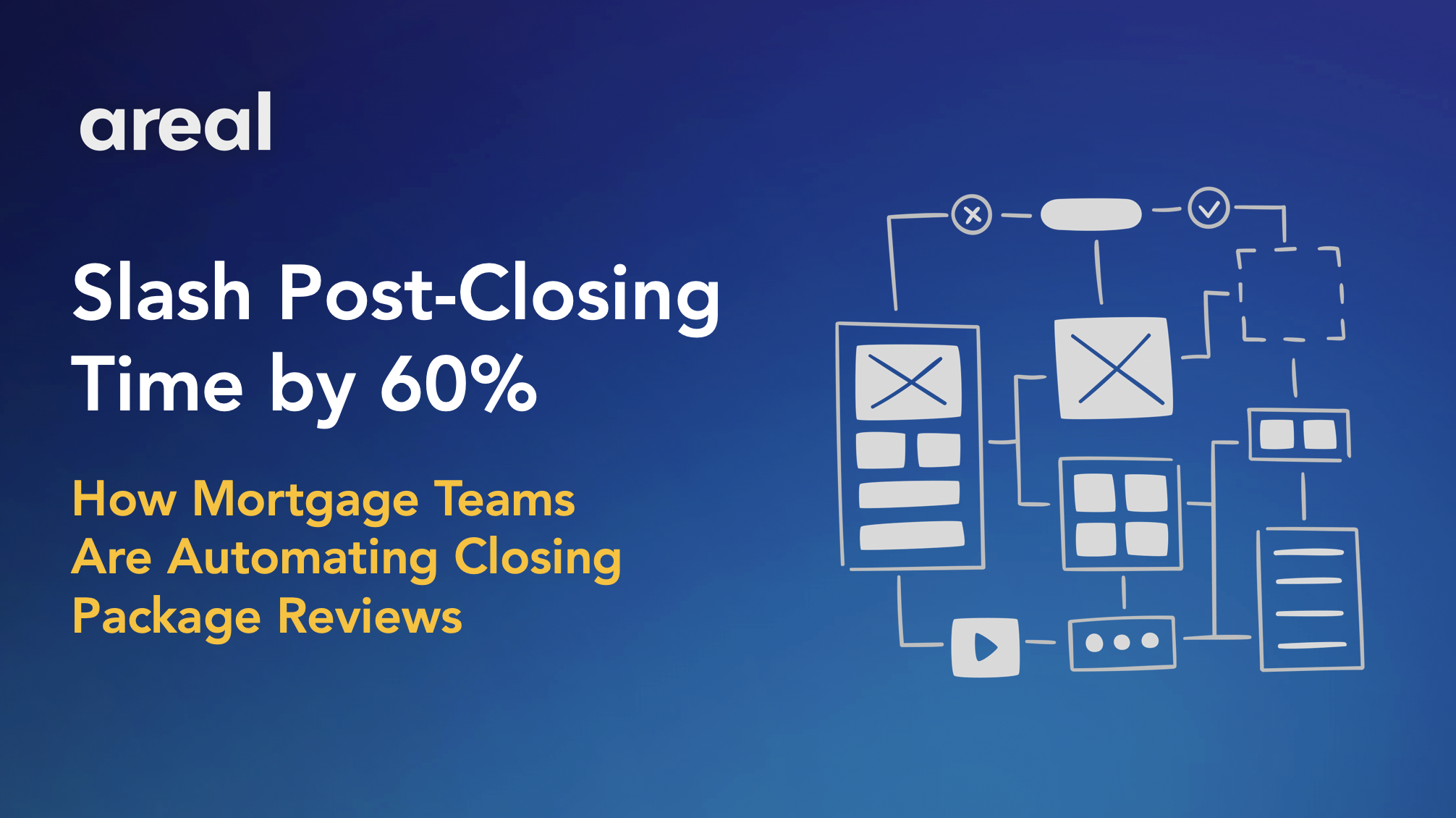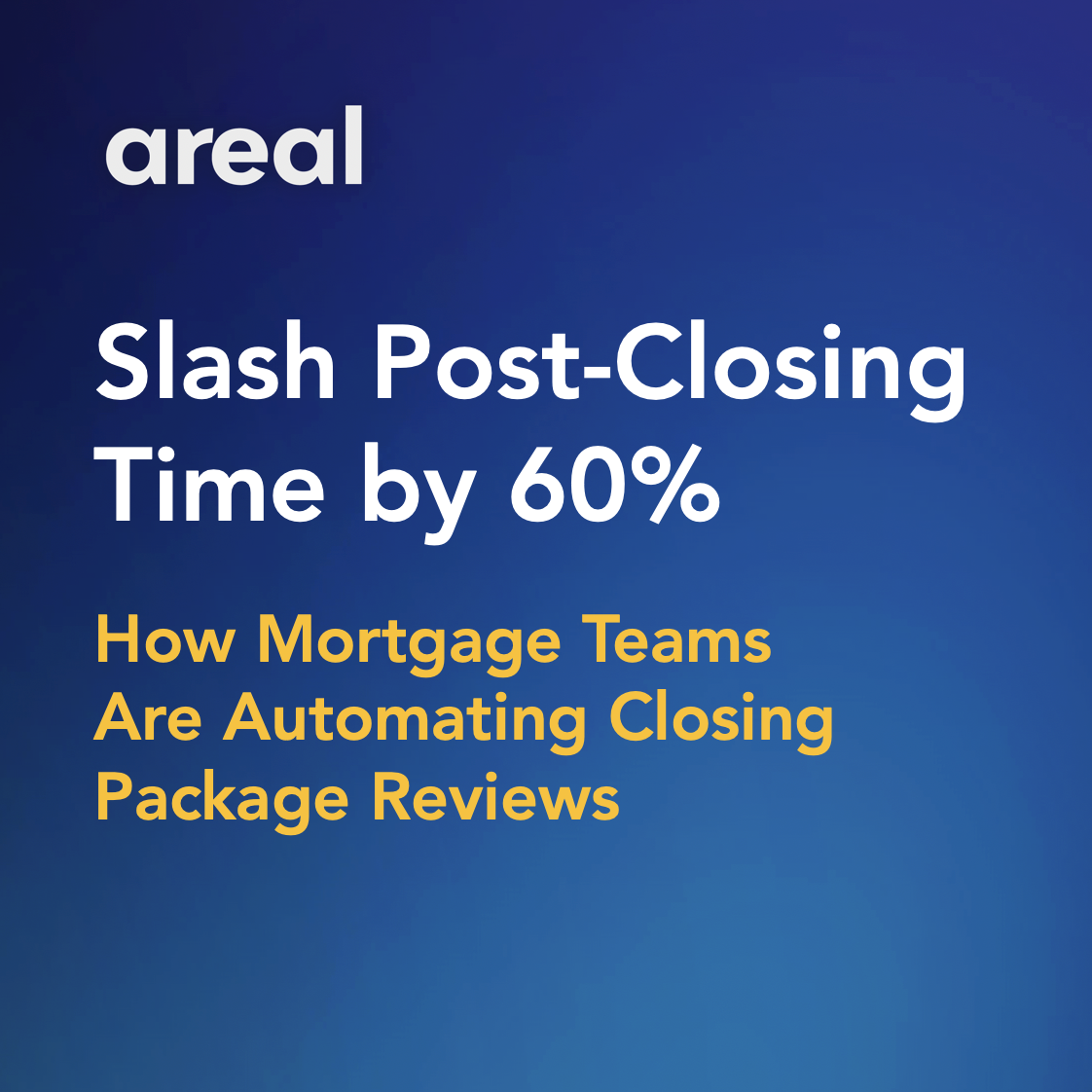Underwriters meticulously analyze factors such as credit history, income, and debt-to-income ratio, providing a thorough understanding of the borrower's financial health. The duration of underwriting can vary, influenced by factors like the complexity of the application and the efficiency of communication between the borrower and the lender. Streamlined applications and prompt submission of required documentation can expedite the process, while intricate cases or high demand periods may extend the timeline.
Mortgage underwriting employs advanced technologies such as Mortgage Document Automation and specialized software to streamline the assessment of documentation, enhancing efficiency. Ultimately, the underwriting process plays a crucial role in balancing the facilitation of homeownership for qualified individuals and protecting lenders from potential risks associated with mortgage lending.
What is mortgage underwriting?
Mortgage underwriting is a pivotal process in the home loan application journey, encompassing a thorough evaluation of a borrower's financial standing to determine their eligibility for a mortgage. This critical assessment delves into various aspects, including credit history, income, and debt-to-income ratio. The goal is to ascertain the borrower's creditworthiness and evaluate the associated risk for the lender. The duration of underwriting varies based on factors like application complexity and effective communication between the borrower and the lender. Innovative tools such as Mortgage Document Automation and specialized mortgage underwriting software enhance efficiency by automating document analysis, expediting the overall assessment. In essence, mortgage underwriting strikes a balance, facilitating accessible homeownership while upholding responsible lending practices and risk mitigation for financial institutions.
How long does underwriting take for a mortgage loan?
The duration of underwriting for a mortgage loan varies but typically takes a few days to several weeks.
What is underwriting in mortgage?
In mortgage terms, underwriting is the process of assessing a borrower's financial profile to determine eligibility for a loan and evaluate associated risks.
What is mortgage underwriting?
Mortgage underwriting is the comprehensive evaluation of a borrower's financial details to assess creditworthiness and determine the risk of lending for a home loan.
How long does mortgage underwriting take?
The timeframe for mortgage underwriting varies, influenced by factors such as application complexity and effective communication, ranging from days to weeks.
What does mortgage underwriting do?
Mortgage underwriting serves as the comprehensive evaluation of a borrower's financial profile to determine their creditworthiness and assess the risk associated with granting them a home loan. Underwriters scrutinize various factors, including credit history, income, employment stability, and debt-to-income ratio. The process aims to ensure that borrowers have the financial capacity to meet their mortgage obligations and helps mitigate the lender's risk of defaults. Underwriters carefully analyze documentation provided by applicants, making decisions that influence loan approval, denial, or conditional approval with additional requirements. Mortgage underwriting thus plays a pivotal role in maintaining a balance between facilitating homeownership for qualified individuals and safeguarding lenders from potential financial risks.
Who does mortgage insurance work for?
Mortgage insurance primarily works for lenders, acting as a risk mitigation tool in cases where borrowers make a down payment of less than 20%. In such scenarios, lenders face an increased risk of financial loss in the event of borrower default. Mortgage insurance, whether it's Private Mortgage Insurance (PMI) for conventional loans or Mortgage Insurance Premium (MIP) for FHA loans, provides a safety net for lenders by reimbursing a portion of the loan amount in case the borrower fails to make payments.
The underwriting process is integral to the mortgage insurance framework, involving a comprehensive evaluation of a borrower's financial profile to determine creditworthiness and assess risk. Questions regarding the duration of underwriting for a mortgage loan and the nature of underwriting in the mortgage process are crucial, influencing the timeline and outcome of the loan approval process. Ultimately, mortgage insurance serves as a vital component in balancing risk and accessibility in the mortgage lending landscape.
Why is mortgage insurance necessary?
Mortgage insurance is necessary to mitigate risks for lenders and promote wider access to homeownership. When borrowers make a down payment of less than 20%, lenders face an increased risk of financial loss in the event of default. Mortgage insurance, whether in the form of Private Mortgage Insurance (PMI) for conventional loans or Mortgage Insurance Premium (MIP) for FHA loans, serves as a safeguard for lenders. It provides a financial cushion by reimbursing a portion of the loan amount in case the borrower fails to make payments.
The underwriting mortgage process is crucial in the context of mortgage insurance, involving a thorough assessment of a borrower's financial profile to determine creditworthiness and assess risk. Questions about the duration and nature of underwriting in the mortgage process influence the need for mortgage insurance, as this process helps maintain a balance between facilitating homeownership and managing financial risks for lenders.
Where does underwriting come in the mortgage application process?
Underwriting is a pivotal stage in the mortgage application process, typically occurring after the borrower submits their application and relevant documentation. It is during this phase that underwriters scrutinize the borrower's financial details, including credit history, income, and employment stability. This comprehensive evaluation aims to determine the borrower's creditworthiness and assess the risk associated with granting a home loan. The questions of how long underwriting takes for a mortgage loan and what exactly underwriting entails are crucial, as they influence the overall timeline and outcome of the loan approval process.
How long does the mortgage underwriting process take to complete?
The duration of the mortgage underwriting process varies based on several factors, including the complexity of the application and the efficiency of communication between the borrower and the lender. Questions regarding how long underwriting takes for a mortgage loan are pertinent, as this timeline can range from a few days to several weeks. Streamlined applications and prompt submission of required documentation often expedite the process, while more intricate cases or periods of high demand may extend the timeframe. Patience is crucial during this phase, as the thorough evaluation of financial details ensures responsible lending practices and risk mitigation for lenders.







